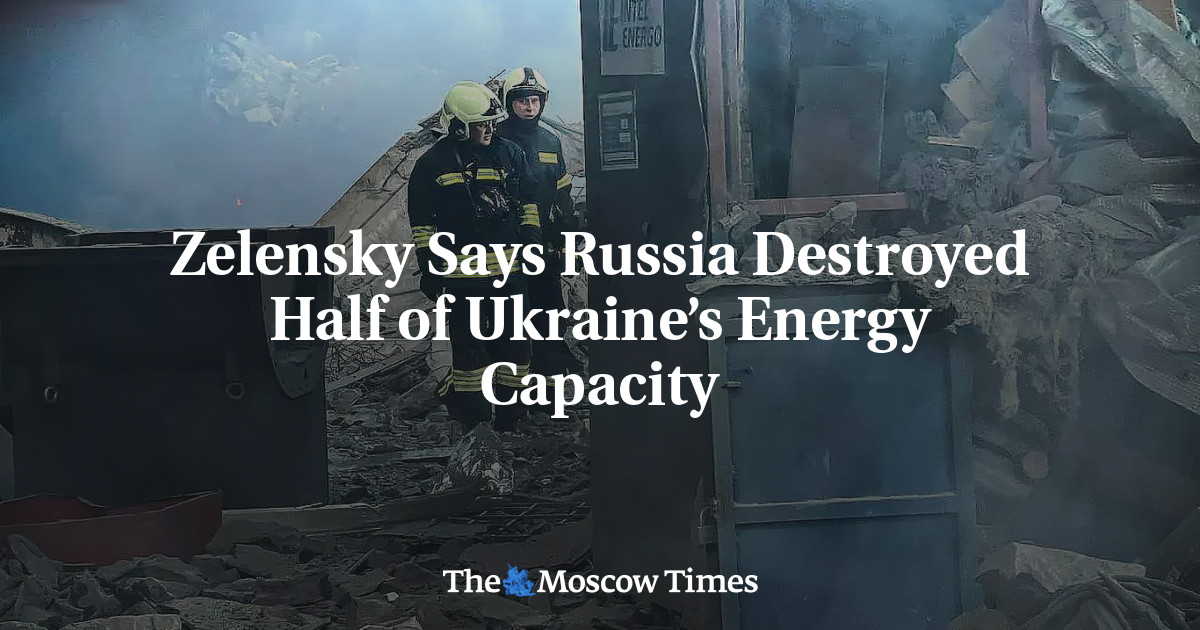
Russian attacks on Ukraine’s energy grid have destroyed half of its electricity generation capacity since the winter, leading to scheduled power outages and regular blackouts, Ukrainian President Volodymyr Zelensky said on Tuesday.
“As a result of the strikes of Russian missiles and drones, nine gigawatts of capacity have already been destroyed. The peak of electricity consumption last winter was 18 gigawatts. So half now doesn’t exist,” Zelensky told a conference on reconstructing Ukraine in Berlin.
He also urged Kyiv’s Western allies to supply more air defense systems, saying that “it is missile and bomb terror that helps Russian troops advance on the ground.”
“Air defense is the answer,” Zelensky said.
Ukraine’s state-owned energy provider Ukrenergo said it was extending scheduled outages around the country because of increased consumption.
“Today… the period of application of hourly outage schedules throughout Ukraine has been extended — restrictions will be imposed from 2:00 p.m. to 11:00 p.m.,” Ukrenergo said in a statement.
On Monday, the company announced outages between 4:00 pm and 10:00 p.m., while adding that there would be outages on Tuesday between 2:00 p.m. and 7:00 p.m.
“The reason is that consumption continues to grow. At the same time, due to extensive damage, Ukrainian power plants cannot produce as much electricity as before the attacks,” Ukrenergo said.
Zelensky said the strikes showed Russian President Vladimir Putin was trying to “hone the practice of destroying energy facilities” including connections between the Ukrainian and European energy systems.
Ukrenergo Chairman Volodymyr Kudrytsky said last week that it may take “years” for Ukraine to restore its full generating capacity.
“We are dealing with an absolutely unprecedented scale of destruction,” he said, adding that the capacity of thermal power plants was at a “historic” low with “virtually no hydroelectric power plant that has not been damaged.”
“It is technically impossible to restore these damaged power plants quickly. It will take time: weeks, often months, sometimes years,” he said in an interview published on Ukrenergo’s Telegram channel.